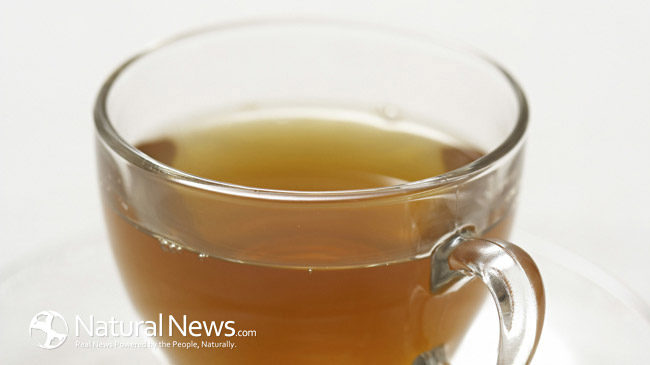Old-timers may recall a drink made with apple-cider vinegar called “switchel” that was popular in rural America in the early- to mid-20th century. Farmers were known to imbibe this concoction to quench their thirst and to boost their energy while cutting hay or doing other strenuous tasks in the outdoor heat. Today, a similarly fermented drink from Asia known as “kombucha” is growing in popularity, with people all around the United States swearing by its health benefits.
The name “kombucha” is derived from the Japanese, in that it is brewed in a seaweed (or in Japanese, kombu) tea (cha). In Western countries, kombucha is typically propagated in black tea instead.
Some call it a “mushroom,” but kombucha is actually a living culture composed of beneficial bacteria and yeasts that resembles a cross between a jellyfish and a pancake.
It’s like a living composite “organism” or community of organisms that feeds off and grows in black or green tea sweetened with beet sugar or cane sugar. As the symbiotic yeast and bacteria feed on the sugars and other nutrients in the tea, they create other kombucha cultures, while fermenting the drink in the process. This increases acidity, creating a slightly alcoholic vinegar that runs about 1 to 2 percent alcohol.
Across Asia, kombucha is called many different names. In Russia, it is chajnyj grib, the “tea mushroom.” In China, it is known as hong chajun or “red-tea fungus.”
There have been many claims circulating about kombucha’s health benefits; most notably people talk of its cancer-fighting and detoxifying properties. Most people simply recognize that kombucha, like unpasteurized apple-cider vinegar, helps foster healthy digestion by promoting the growth of good bacteria in the intestines.
The drink is commercially available, though it can be somewhat difficult to get these days. A recent uproar over the slight alcohol content of the drink prompted a mass recall across the United States.
But why buy bottled kombucha, when it is so simple to grow yourself? You don’t need a laboratory or even lab equipment. All you need is a kombucha starter culture, which can be purchased from companies that specialize in the drink or obtained for free from a friend or a neighbor who grows his own. You will also need some black or green tea and table sugar.
One of the most important things to know about making your own kombucha is that, due to the acidity of the tea, you should never use plastic, metal or porcelain jars during the fermentation process because toxins in those jars will be leached out from the container into the drink. Instead, most people use a large gallon glass jar to brew the drink.
Watch the video below by KombuchaBrooklyn.com for tips on homebrewing Kombucha. You can also buy a Kombucha kit from the company, that includes the scoby, glass jar, tea, sugar, temperature strip and cheese cloth.
[youtube http://www.youtube.com/watch?v=Z6yq3HF5F40]
Those who brew their own kombucha should pay close attention to sanitary practices to ensure the drink is not contaminated by bad bacteria or mold. Besides making sure all work surfaces and jars are thoroughly cleaned, you can test the pH of the drink regularly to ensure that it is 4.5 or lower. Anything above that pH could result in the growth of possibly harmful mold. If it does rise above that pH level, add a little apple-cider vinegar (pH about 2.4 to 3.4) to drop it back down.
Determining when your kombucha is ready to drink depends on taste. Some people, like this writer, prefer a more vinegary taste. Others prefer a milder flavor, at a higher pH.
Kombucha can be mixed with other drinks, such as fruit juices or teas, to flavor them. A recent batch this writer brewed was mixed with a sweetened tea made from some organic lemon verbena, which gave the resultant drink a lightly sweet, lemony flavor.
Your finished kombucha can be bottled in glass or plastic. But keep in mind that, since it is unpasteurized, the tea will continue to ferment if kept at room temperature.
This will result in natural carbonation at room temperature, which could cause glass bottles to burst if left unchecked. About the same chance as one would have if brewing homemade root beer. Storing your bottled kombucha tea in the refrigerator will arrest fermentation and prevent any unwanted pyrotechnics.
Chris DePaulo is a staff writer for Rabble Magazine, focusing on health, nutrition, lifestyles and the environment. To download a free special report on Ebola, sign up for RABBLE’s free e-newsletter on the website, RabbleMagazine.com.





